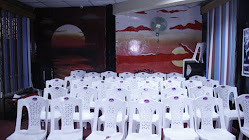Sobriety needed on proposed films Bill
SATURDAY
OCTOBER 29 2016
The
Kenya Film Classification Board Chair Ezekiel Mutua addresses the media at his
Uchumi House office in Nairobi on February 23, 2016. A new Bill attempts to
expand the mandate of the KFCB beyond films and stage plays. PHOTO | SALATON
NJAU | NATION MEDIA GROUP
In Summary
·
On the recently published
Film, Stage Plays and Publications Bill 2016, we are seeing the routine debacle
in law making in Kenya, where laws precede policy.
·
This Bill seeks to
legitimise the regulatory overreach that the KFCB has engaged in since late
2015 under the guise of enforcing the Programming Code for free to air radio
and TV broadcasters.
ADVERTISEMENT
The
current debate on the manner and approach to regulation of the film industry in
Kenya is part of the wider challenges of media and content regulation,
especially with the onset of internet-based production.
While
the debate in Kenya is largely focused on the raft measures including the
development of a Bill and the manner the Kenya Film and Classification Board
(KFCB) has handled the regulation of the film industry, globally, media,
content and film regulation is being dealt with more cautiously.
We
should allow a robust debate around issues instead of the personalised attacks
on the KFCB chief executive Ezekiel Mutua, for Mr Mutua only speaks on behalf
of the board.
On the
recently published Film, Stage Plays and Publications Bill 2016, we are seeing
the routine debacle in law making in Kenya, where laws precede policy.
It is
from the Presidential Task force on parastatals reforms, which is yet to be
legalised, that the Film, Stage Plays and Publications Bill 2016 is premised.
Curiously,
it does not recognise the existence of the Kenya Films Commission Policy or the
Department of Films in the ministry of Information.
BOARD MANDATE
From
the discussions, the Bill is meant to repeal the Film and Stage plays Act cap
222, following the recommendation of the Presidential task force that wants the
Kenya Film Commission to be restructured and its regulatory function
transferred to KFCB, which will be renamed Kenya Film Regulatory Service.
The KFC
will be renamed Kenya Film Development Service.
The
Bill attempts to expand the mandate of the KFCB beyond films and stage plays.
The
drafters ignore the task force recommendation on the establishment of a film
regulatory service and instead create an amorphous regulator of almost every
form of media available today including classification of all broadcast content
including commercials, infomercials, documentaries, interviews, programme
promotions, programme listings, community service announcements and station
identifications, gaming applications, video on demand, over the top services,
outdoor advertising and print publications.
In
effect the Bill seeks expand the mandate of the board to include things that
are not in any way related to the regulation of film production and
distribution.
This
Bill seeks to legitimise the regulatory overreach that the KFCB has engaged in
since late 2015 under the guise of enforcing the Programming Code for free to
air radio and TV broadcasters.
BILL DETAILS
This is
an unlawful exercises since subsidiary legislation cannot purport to amend a
principle Act of Parliament.
The
Bill grants the KFCB chief executive, an ex-officio member of the board,
powers to unilaterally perform certain functions that would require the input
of the entire board.
According
to the Bill, the chief executive makes decisions on applications for filming
certificates; imposes alterations and additions to films; approves or rejects
the alterations and additions; and approves film posters.
These
functions are supposed to be carried out by the board.
The
Bill retains Section 9 of Cap 222 which provides for the monitoring and
controlling of film production by the police, a colonial-era film censorship
practice.
The
Bill imposes a raft of excessive penalties for various offences. The maximum penalty
under Cap 222 is Sh100,000 and/or between two months to five years’
imprisonment.
Under
the Bill, for example, distributing or exhibiting an unclassified film or
visual media earns a maximum penalty of Sh2 million and/or five years’
imprisonment.
The
corresponding offence under the Copyright Act imposes a maximum fine of
Sh400,000 and/or two years’ imprisonment.
Under
the Bill, the KFCB is granted extended powers to classify printed publications
as either objectionable or not objectionable. Without a definition of
“publication” the assumption is that the term will apply to every form of
printed material that is published.
Instead
of personalised attacks, let the industry engage at policy level.
Victor Bwire works at the Media Council of Kenya. Views expressed
here are personal
Subscribe to:
Post Comments
(
Atom
)


















No comments :
Post a Comment